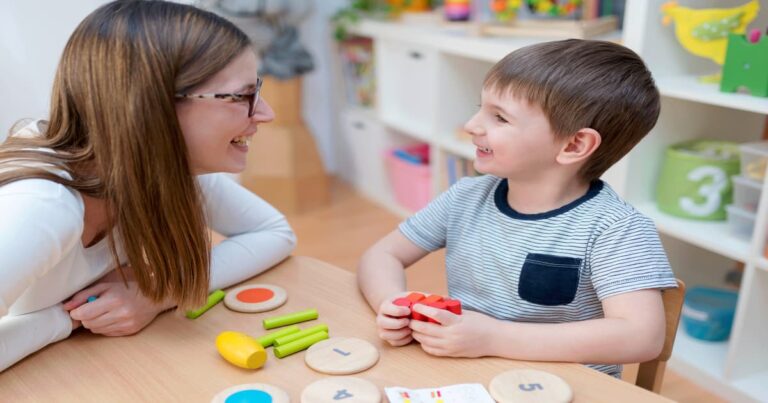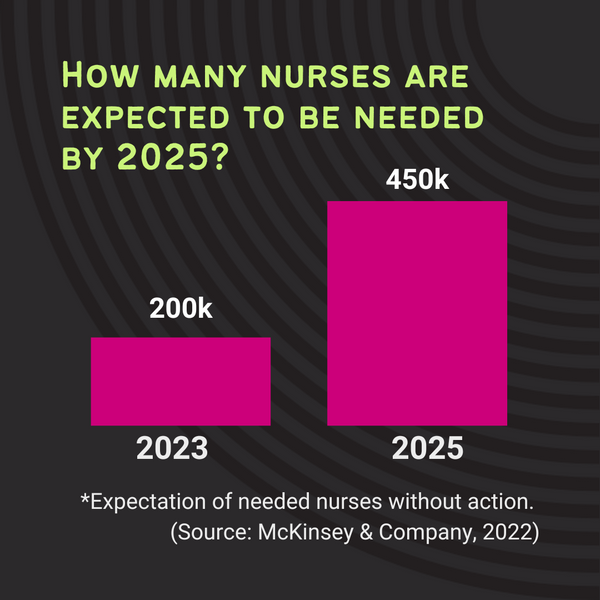Is Daycare Harmful? Examining The Expert's Claims

Table of Contents
Potential Negative Impacts of Daycare
While daycare offers many advantages, it's crucial to acknowledge potential drawbacks. Understanding these concerns helps parents make informed choices and mitigate potential negative impacts.
Increased Risk of Illness
Daycare centers, by their nature, involve close contact between children, significantly increasing the risk of illness transmission.
- Higher rates of respiratory infections: Children in daycare experience a higher incidence of colds, the flu, and other respiratory illnesses compared to those cared for at home.
- Increased ear infections: The close proximity to other children also elevates the risk of ear infections.
- Other contagious illnesses: Daycares can also be breeding grounds for other contagious illnesses like hand, foot, and mouth disease, and various viral infections.
However, many daycare centers implement preventative measures:
- Strict hygiene protocols: Frequent handwashing, sanitizing surfaces, and illness exclusion policies are crucial for minimizing the spread of germs.
- Prompt attention to sick children: Daycares should have procedures in place to quickly identify and isolate sick children, preventing further spread.
- Educating parents: Open communication with parents about illness outbreaks is vital for effective prevention.
Potential for Separation Anxiety
Separation from parents is a significant adjustment for young children, and daycare can trigger separation anxiety in some.
- Signs of separation anxiety: These can include clinginess, excessive crying, difficulty sleeping, or changes in eating habits.
- Strategies to mitigate separation anxiety: A gradual transition to daycare, establishing a comforting routine, and maintaining a strong parent-child bond can significantly ease this transition.
- Consistent caregivers: A consistent and caring caregiver can build trust and reduce anxiety.
The key is to understand the normal range of reactions and implement strategies to make the transition smoother.
Quality of Care Concerns
The quality of care varies significantly across daycare facilities. Concerns exist regarding:
- Teacher-child ratios: High ratios can compromise the quality of individual attention each child receives.
- Teacher qualifications and training: Experienced and well-trained caregivers provide better care and support.
- Facility cleanliness and safety: A clean and safe environment is paramount to a child's well-being.
- Understaffing and inadequate training: These factors lead to overworked and stressed caregivers, potentially resulting in inadequate supervision.
Finding a reputable daycare center requires thorough research.
Benefits of High-Quality Daycare
Despite potential drawbacks, high-quality daycare offers significant benefits for children and their families.
Social and Emotional Development
Daycare provides opportunities for children to interact with peers, fostering crucial social and emotional development.
- Enhanced social skills: Children learn to share, cooperate, negotiate, and resolve conflicts.
- Improved emotional regulation: Interacting with various personalities helps children learn to manage their emotions and build resilience.
- Increased independence: Daycare encourages self-reliance and promotes autonomy.
Numerous studies support the positive effects of daycare on children's social and emotional development.
Cognitive Development
High-quality daycare programs provide enriching learning experiences, boosting children's cognitive development.
- Enhanced language skills: Interaction with peers and caregivers helps children develop language and communication skills.
- Improved problem-solving abilities: Structured activities and play opportunities challenge children's thinking and problem-solving skills.
- Exposure to stimulating learning environments: Daycares offer access to diverse learning materials and activities not always available at home.
Research consistently shows a positive correlation between early childhood education and improved academic outcomes.
Parental Benefits
Daycare also offers significant advantages for parents.
- Financial independence: Daycare allows parents to work and maintain financial stability.
- Career advancement: Access to childcare enables parents to pursue career opportunities.
- Reduced parental stress: Knowing their child is in a safe and nurturing environment can reduce parental anxiety.
Addressing Parental Concerns and Finding Quality Daycare
Addressing your concerns and finding the right fit is paramount.
Choosing the Right Daycare
When selecting a daycare, consider these factors:
- Licensing and accreditation: Ensure the facility is properly licensed and meets safety standards.
- Teacher-child ratios: Opt for lower ratios to ensure adequate supervision and individual attention.
- Curriculum and learning environment: Look for a program that aligns with your values and offers stimulating activities.
- Safety features: Check for security measures, emergency plans, and a safe play area.
Building a Strong Parent-Child Relationship
Maintaining a strong bond with your child is vital, even when they attend daycare. Regular interaction, bedtime stories, and quality time are crucial.
Communicating with Daycare Staff
Open communication between parents and daycare providers is essential. Regular updates and discussions about your child's progress are beneficial.
Conclusion
The question, "Is daycare harmful?" is complex. While concerns about illness and separation anxiety exist, the benefits of high-quality daycare, including enhanced social-emotional and cognitive development, and support for parents, generally outweigh the potential risks. Carefully consider the factors discussed here to make an informed decision about whether daycare is the right choice for your family. Remember, finding the right daycare is crucial for your child's well-being!

Featured Posts
-
 Metas Whats App Spyware Verdict A Costly Setback But Not The End
May 09, 2025
Metas Whats App Spyware Verdict A Costly Setback But Not The End
May 09, 2025 -
 Hoe Brekelmans India Zo Veel Mogelijk Aan Zijn Zijde Houdt
May 09, 2025
Hoe Brekelmans India Zo Veel Mogelijk Aan Zijn Zijde Houdt
May 09, 2025 -
 56 Million Boost For Community Colleges To Tackle Nursing Shortage
May 09, 2025
56 Million Boost For Community Colleges To Tackle Nursing Shortage
May 09, 2025 -
 Massachusetts Daycare Center Police Investigating Nearby Child Rapist Residence
May 09, 2025
Massachusetts Daycare Center Police Investigating Nearby Child Rapist Residence
May 09, 2025 -
 Trump Administration Day 109 May 8th 2025 Significant Developments And Impact
May 09, 2025
Trump Administration Day 109 May 8th 2025 Significant Developments And Impact
May 09, 2025
Latest Posts
-
 The Tesla Dogecoin Connection Analyzing Recent Market Volatility
May 09, 2025
The Tesla Dogecoin Connection Analyzing Recent Market Volatility
May 09, 2025 -
 Elon Musk And Tesla The Ripple Effect On Dogecoins Value
May 09, 2025
Elon Musk And Tesla The Ripple Effect On Dogecoins Value
May 09, 2025 -
 Dogecoins Recent Decline Examining The Role Of Elon Musk And Tesla
May 09, 2025
Dogecoins Recent Decline Examining The Role Of Elon Musk And Tesla
May 09, 2025 -
 194 Billion In Losses The Impact Of Trump Inauguration Donations On Tech Billionaires
May 09, 2025
194 Billion In Losses The Impact Of Trump Inauguration Donations On Tech Billionaires
May 09, 2025 -
 Kimbal Musk Beyond Elons Shadow A Profile Of A Successful Entrepreneur
May 09, 2025
Kimbal Musk Beyond Elons Shadow A Profile Of A Successful Entrepreneur
May 09, 2025
